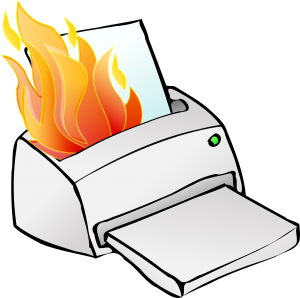According to the U.S. Fire Administration (USFA), 364,500 fires resulted in 2,450 deaths, 13,900 injuries, and over $6 billion in property damages in 2011.
Most of these fires occurred during winter months when heating devices are used most often by residences.
To prevent the risk of fire and protect your family and property, here are the common causes of electrical fires and how to prevent them.
Old Electrical Sockets and Unsafe Appliances
Old and overused appliances, as well as those not up to modern safety standards, can draw more power than the sockets can handle.
Worn-out sockets, frayed electrical cords, and self-jointed wires can cause major fires, especially if not grounded properly.
They can direct heat and fire to curtains, rugs, carpets, and combustible plastic.
Prevention Tips
- Check the electrical appliances frequently, and inspect plugs and cords.
- Replace damaged cords as soon as you detect them, and don’t attempt to repair them yourself.
- Buy appliances made of quality materials and up to approved standards.
- Install surge protectors and ground fault circuit interrupters to guard major appliances, and make sure to only use power strips and protectors authorized by the testing labs.
Using Light Fixtures that Exceed the Permissible Wattage
Common fires can be caused by plugging lights, lighting bulbs, and appliances into sockets that can’t handle high levels of wattage.
Antique lighting appliances’ wiring can be defective, which makes them unstable by overheating.
Decorating lights with cloth shades and colored paper can also increase the chance of fire if the fabric or material heats up.
Prevention Tips
- Make sure to plug all lighting devices into sockets that match the prescribed wattage.
- Try not to use extension cords for lighting.
Plugging Multiple Appliances in One Extension Cord
Another major fire hazard is the unrestricted use of extension cords.
The risk of fire can increase if your computer, home theater, TV, and other appliances are plugged into a single extension cord.
It can lead to excessive power load beyond what it can handle.
Prevention Tips
- Hire an electrician to install outlets that match appliances you use regularly.
- Don’t plug appliances into multi-socket extension cords.
- Avoid using multiple extension cords at the same time.
Placing Portable Heaters Near Combustible Materials
Portable space heaters using coils can be hazardous if they are positioned near rugs, curtains, beds, and other cloth-covered furniture.
The risk of fire increases if inflammable material comes in contact with red-hot coils.
Prevention Tips
- Ensure that inflammable materials are far from portable heaters.
- Better use radiation heaters that won’t catch on fire on direct contact.
Defective Wiring Due to Passage of Time
Over time, you may get more appliances such as home theaters, wide-screen TVs, or air conditioners.
Older home wiring may not be capable of handling the increased load of power.
It can heat up quickly and catch on fire.
If the breaker boxes are defective, they can’t stop overheated electrical panels from catching on fire.
Prevention Tips
- Have an electrician check your home to conduct an electrical safety check.
- If you detect defective wiring, replace it immediately.
- Install quality smoke detectors and fire extinguishers.
This page is also available in Spanish.










